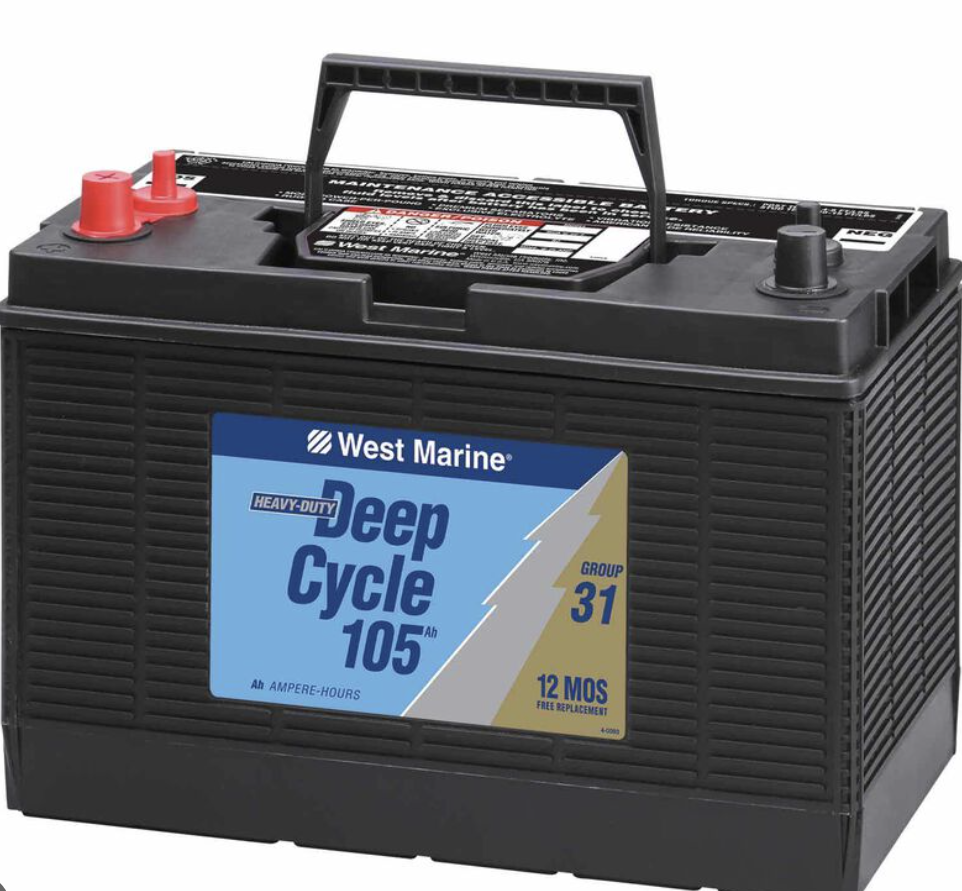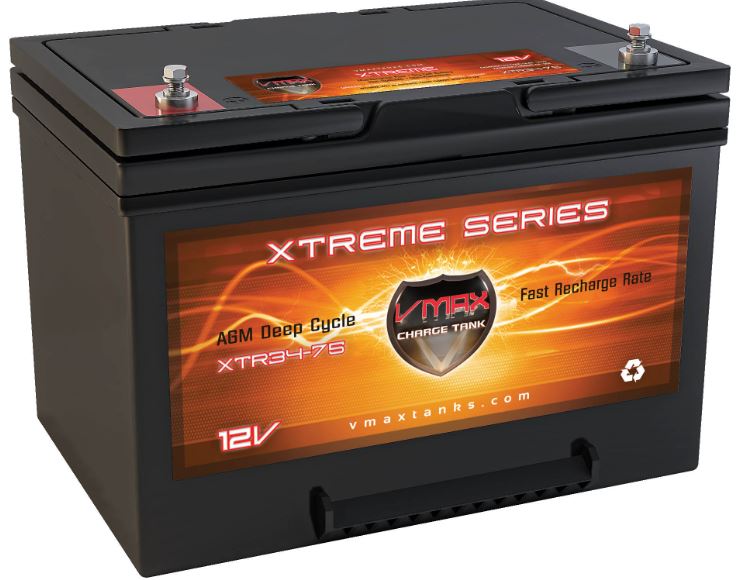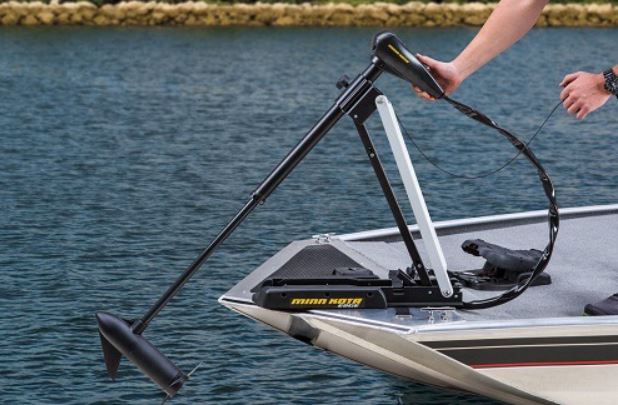Why Does My Boat Have 3 Batteries?
You will find many different configurations when it comes to having batteries in a boat. But you might be asking why?
Why Does My Boat Have 3 Batteries? Boats with twin engines, or a trolling motor will generally have three batteries. This is so that the each engine has it’s own starting battery, and so that there is a separate house battery to run all of the electronics on the boat.
This article will explain the reason why you have three batteries in your boat and why you want to have three batteries in your boat!
What’s the Difference Between a Starting Battery & a House Battery?
Starting Batteries
Starting batteries deliver significant amounts of current to start your boat’s engine. While these batteries provide an extraordinary amount of current, they do it in short bursts (no more than ten to fifteen seconds at a time).
When you crank the engine over. The battery discharges a large percentage of its power. So the more times you crank the engine over. The less reserve power the battery has in it.
It's important that the battery is able to have enough power to turn the engine over. Or else you will end up stranded somewhere on the water. Without the ability to start the engine!
Also, you must remember that starting batteries have a specific lifespan. You can only put the device through an estimated amount of starts before it becomes useless. People also refer to this as the “discharge cycle.”
Whenever a boat’s engine uses power from a starting battery, it puts immense pressure on it and drains it significantly. If your battery is new, it will be capable of carrying longer loads since its discharge cycle will be fresh and hasn’t been through very many cycles.
Once the engine begins to run, it will start charging the starting battery backup. Therefore, you do not have to worry about your battery going to a completely discharged state. It will enhance the device’s lifespan.

House Battery
House batteries or deep cycle batteries are quite different from their starting counterparts. As opposed to starter batteries, these are capable of enduring deep discharge cycles while lasting for long periods.
Because of this, house batteries are used to power pumps, lights, and various other electronics on the boat. Think of these batteries as your boat’s default battery banks responsible for providing and storing electrical energy according to your needs.
Basically, the house battery is only used for running whatever you want to run on the boat. Where the starting battery is designated to only start the engine, and not run the boats electronics. The house battery is usually charged up from the engine's alternator though
There are other alternatives to charging house batteries too. You can utilize renewable energy sources like wind turbines or solar panels to charge your battery even when you’re out at sea.
When you are choosing a suitable battery option for your boat, it would be best to choose one that can store more power than the general requirements for offshore trips.
Simply said, you shouldn’t compromise on power when you’re out on the sea. You will need a 31 or 27 AGM battery if your boat consumes a lot of energy.
Why It’s Important to Have Separate Batteries for Each Engine
As we discussed earlier, most boats have two forms of power requirements. The first one is known as the starting load. It is the power a boat’s engine requires to start.
The second form determines the amount of energy your boat needs to run when it’s on the water; boaters refer to this type as the “running load or house load.”
Mostly, boats have two different battery types stored inside them. There is the starting battery, which is responsible for revving up the engine, and then there is the house battery. It lights up all of our boat’s electronic devices.
Big ships have massive engines. The larger they are, the more energy they need to start. What this means is – each boat has different battery requirements. It is abundantly clear that you will need two or maybe even three batteries for a boat that consumes a lot of power.
In any case, you will need to have separate power providers for each engine. Why? Well, first off, it improves energy efficiency. Secondly, it prevents the motors from overloading, especially if you have multiple batteries to power your boat.
Then it is so important to remember that you want the starting battery and the house battery separated. Because if you go out somewhere and turn the engine off but keep using the electronics.
Say at the sandbar running the radio or stereo. Or when you are fishing using the fish finder. This can drain the battery. If you are using the starting battery for the house battery.
Then drain the battery down. You won’t be able to start the engine and get home! Which is why you separate the house and the starting batteries by a battery switch.
Allowing you to disconnect the starting battery while you are stopped. Then turn it back on to start the engine, without worrying about being stranded!
You’ll want to read this article here to learn What To Do If Your Engine Won’t Start!
How Many Batteries Do Trolling Motors Need?
In case you have a trolling motor installed, you will most likely require two or three house/deep cycle batteries for powering it. In contrast to engines that use gasoline, which only need the battery for starting and storing power.
If you want to make sure that your boat runs consistently throughout your water adventure, choose deep-cycle batteries that offer you a large storage capacity. Once you get your preferred device, make sure to wire up your trolling motor on its separate circuit.
What about Single Engine Boats?
Generally, single-engine boats only use two batteries. Since these boats are smaller than common ones, their engines do not consume a massive amount of energy. Using three batteries in boats with one engine is only common when there are a lot of electronics installed into the boat.
Two batteries are usually sufficient for single-engine boats because you only need one starting battery. And one house battery.
If you would like to know more about changing batteries out. You should read this article here about How To Make Boat Batteries Last Longer. In there are also the instructions to safely change out your boats batteries.
Practice precaution before installing these batteries as any misstep during the procedure could cause you and your boat expensive damage or you could even get seriously hurt as well!
How Long Do Marine Batteries Hold Charge?
Most marine batteries last about two to five years. Several brands provide one-year warranties for their cells; you may even get three-year warranties from expensive brands.
It’s no secret that boat batteries can be expensive. You must take care of them at all costs to ensure that you make the most out of them and possibly extend their lifespan. It will save you a lot of money and frustration.
The last thing anybody wants when they are stranded in a lake is a dead marine battery. Unless you are aware of your battery’s age, your device could be living on borrowed time.
It would be best to replace your current battery with a brand new one if it’s getting questionable on the age. That said, let us look at some factors to determine how long a marine battery lasts:
Age
The older your battery, the higher the likelihood that its plates are suffering from plate shedding. It creates a brown sludge beneath the battery case, which is a clear sign that you should consider replacing your battery.
Improper Maintenance
Poor battery maintenance will undoubtedly lead to undesired results. Avoid using tap water to clean your battery as it causes sulfation.
Instead, use distilled water. A power unit can be quite hazardous if you do not clean it regularly or leave its corrosion spots unattended.
Using the Correct Battery Matters
In case you’re using automotive batteries for your boat and wondering why they do not last, you are probably using the wrong battery. Many boat owners don’t know this, but using a dedicated battery is crucial.
Well-maintained dedicated marine batteries are more than capable of lasting you up to four or five years!
Storage
While your battery is in storage, it will keep discharging. In some instances, these devices release as much as thirty to forty percent per month!
If your storage is too humid, cold, or hot, it could impact on your battery’s discharge. Also, remember not to leave it in the depository during the winters. This will affect your battery’s life and make it harder for you to charge it back to its optimal state.
We recommend reading this article here to learn more about How To Store Your Boat’s Batteries & Make Them Last Longer!
Improper Charging
Overcharging or undercharging batteries can shorten their lives as well. Not charging a battery enough is the number one reason for sulfation. It leads to incorrect voltage readings and can even make your engine die!
If your battery keeps dying. You should check our article on this subject here. Where we talk about Why Your Boat Battery Keeps Dying & How To Fix It!
As far as overcharging goes, it deprives the cells of electrolytes and overheats them, causing a dangerous situation. Eventually killing the battery and costing you more money!

Humidity and Temperature
Once again, keeping your batteries in places with extreme temperatures will damage them. Extra cold temperatures cause flaking inside the cells between charging cycles. It often harms the unit and halts charging.
On the other hand, if the temperature is too high, your battery’s grids will shrink and expand. Its parts will damage because of corrosion, and the water inside the device will eventually evaporate. Leaving you with a dead battery.

